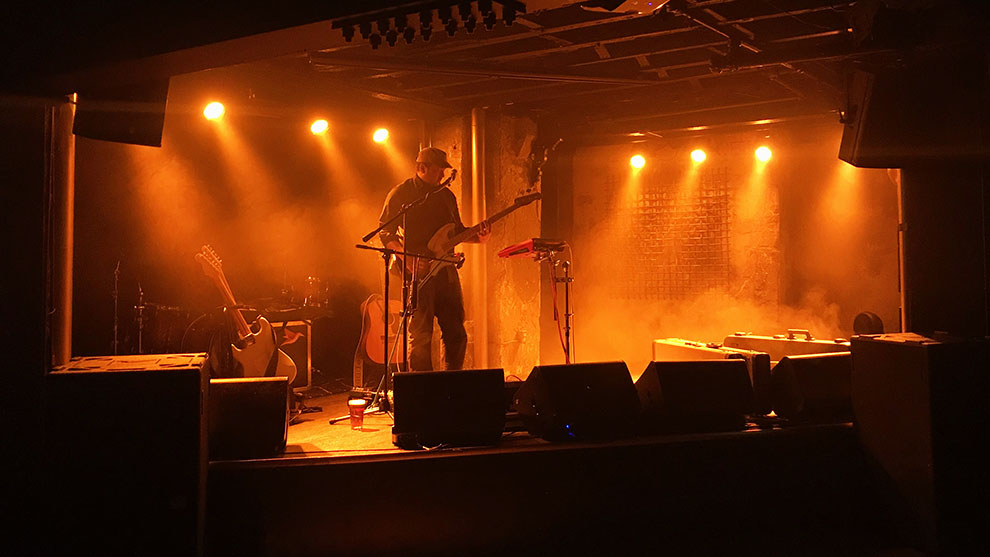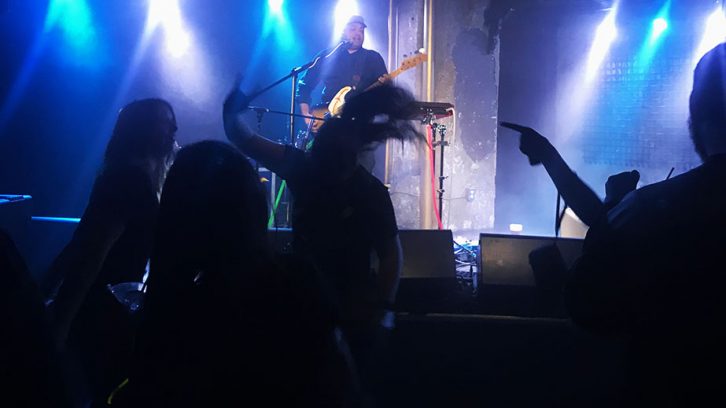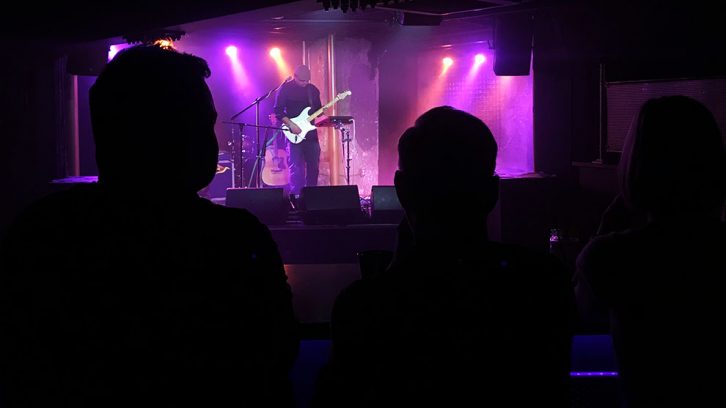Music
Study to assess Nova Scotia’s music industry
Musicians, industry experts hope study leads to more investment

caption
Asif Illyas warms up at Sniggily Wiggily's Saturday night.The crowd was large and loud for local musician Asif Illyas at Halifax bar and live music venue Sniggily Wiggily’s Saturday night.
But only for 45 minutes.
The show started at 10 p.m. with about 60 people. By 11 p.m., the crowd had dissipated to about 20.
“This venue, it’s got one of the best sound systems of the city, but it stays empty a lot of the time,” Illyas said. He played for a group of less than 10 last time he was at Sniggily Wiggily’s.
Illyas has played music in Halifax since 1992, around the time he said the municipality earned the temporary moniker, “the new Seattle,” for its emerging grunge scene.
It’s local artists like him the province hopes to benefit with an economic and social impact study about the local music industry.
Communities, Culture and Heritage Nova Scotia posted a request for proposals Thursday. The research is part of the province’s Culture Action Plan, a strategy focused on growing the creative economy.

caption
People rushed to dance to Illyas’s cover of It’s My Life by Talk Talk.“It gives the industry some clout if the results indicate that the sector has a positive impact on our economy and society,” said Scott Long, executive director of Music Nova Scotia and a member of a committee that will be involved in the study.
Having official data can prove what industry professionals know from experience, but don’t have on paper.
People who were interviewed for a 2017 East Coast Music Association study on Atlantic Canadian music said Nova Scotia’s music infrastructure is the largest on the East Coast. It also said there wasn’t a recent study that focused specifically on Nova Scotia.
Is it worth it?
Laura Simpson has been working to support Nova Scotia musicians for years. She’s juried for various events, including the Juno Awards, and founded The Syrup Factory, Side Door, and Make.Do.Camp, three businesses geared toward promoting and backing the local industry.
“Any creative industry is not considered a legitimate ‘big I’ industry until it’s shown and proven to give dollar amount in return on its expense,” said Simpson.
She noted studies done by the Canadian Live Music Association and the Canadian Arts Presenting Association as good examples Nova Scotia could follow.
“In the Canadian landscape, Nova Scotia punches above its weight for sure, when you’re talking about success versus population size,” she said.
Classified, Rita MacNeil and Joel Plaskett are just a few examples of artists from Nova Scotia who made it big.

caption
People gathered at the bar at Sniggiily Wiggily’s to watch Illyas on stage Saturday.Both Simpson and Long hope the study will highlight the industry’s faults. They voiced concern about a limited number of venues for artists. Long said that if the industry’s value is proven and these weaknesses are exposed, the government will have a clear idea of where to invest and what needs to be fixed.
Simpson said there also aren’t enough labels or management companies in the province, and the ones that do exist are near capacity. The result is artists leaving for Toronto, Montreal and Vancouver, where the industry foundations are stronger and there are bigger populations from which to develop a fanbase.
On the social side, Simpson said thriving arts communities make cities better places to live. She thinks Nova Scotians don’t understand or appreciate the quality of local music.
“Artists are often given a lower step in society, which I think is completely opposite to what we should be doing,” said Simpson.
Long said he hopes social impact will be measured by a lot of consultation with the public. He wants to know how people personally experience and value music.
In 2018, Communities, Culture and Heritage found that of 1,002 Nova Scotians surveyed, 74 per cent attended arts performance events at least once a year, and 81 per cent said culture improved the quality of their lives.
“I feel that we’re going to find that it’s worth more than we thought,” Long said about the music industry in general.
A musician’s perspective

caption
Illyas played a one-man show using a loop pedal.Illyas has other ideas about how the local industry could be improved.
“The underground scene has all the attributes of a major label scene, but it’s still underground,” he said.
He thinks Nova Scotia suffers from a global problem: people don’t listen to music as a community anymore. Listeners have personalized playlists on individual platforms like Spotify and Apple Music, which means they have access to a massive music library whenever they want.
Illyas said he will be shocked if the study addresses how much money musicians make. It’s not much for providing people with “something that basically is the soundtrack of our lives.”
He hopes the study will educate and remind people about the joy of seeing music with friends or other fans. He wants to see more funding for events, like live concerts, that attract crowds to little-known, local talent.
The committee Long is part of will include other industry experts who will help review project proposals and give advice to help steer the study. The results will help inform future decisions for the industry.
Communities, Culture and Heritage said in a statement their vision is for Nova Scotia to be known for its “strong, empowered and vibrant communities,” including a healthy creative economy.
The timeline for the study is unclear. More information will be available once a proposal is chosen.
“I’m always a little skeptical, to be honest, until there’s action that comes out of these kinds of studies,” said Simpson.


B
Broski
I
Ian McLaws
M
Music Guy
E
Ed